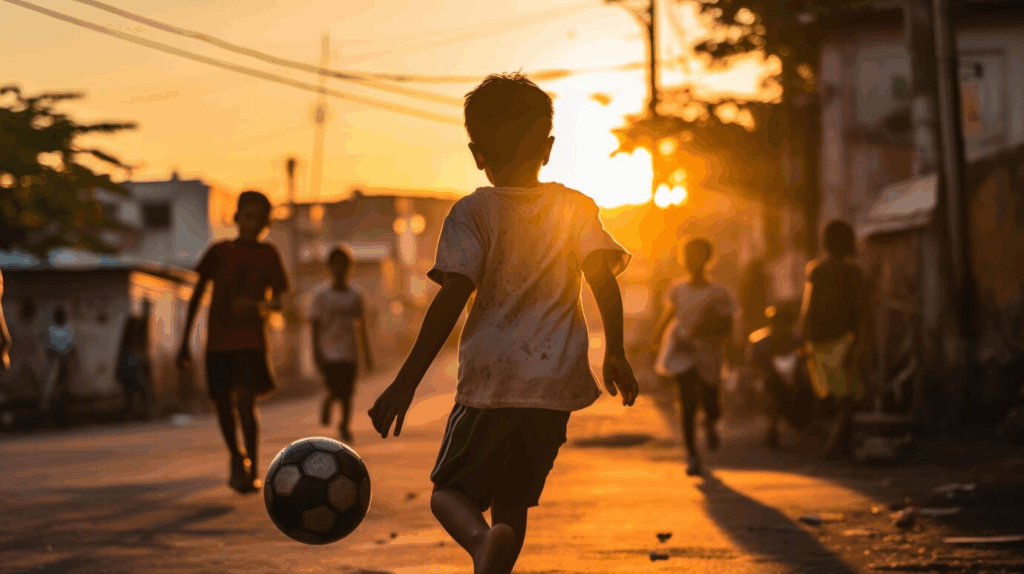A remote soccer field. A poorly taken care of court with a rusted hoop. It looks empty for a place to be on any other day, but everyone from the town comes when game day comes. Sidewalks are filled with food trucks. Children are now selling water for some extra spending cash. Local politicians begin to greet everyone. Not only are sports fun, but they also bring money into places that are often ignored and need new businesses.
Job Creation through Sports Infrastructure
Starting with a blank page comes with an idea, along with a paycheck later. A sports hall, stadium, or training center consumes a vacant plot and turns it into a community building that needs a great deal of local construction work. Platforms like online betting site, which cover such events and benefit from the surrounding excitement, reflect how even betting ties into this economic movement. Cities are spending money to host a game and investing in the region, which means jobs for electricians, builders, plumbers, and engineers who work day and night.
But there is still much more money to make after the ribbon-cutting ceremony. These new venues have created new positions for security, event staff, maintenance workers, and groundskeepers. Along with great seasonal job opportunities comes permanent income. The economy and infrastructure of towns in desperate need of investment rapidly improve.
Boosting Small Business Revenues
If you walk a block from any busy arena, you will feel the buzz of open cash registers and the smell of fried food enticing you to enter. Demand for nearby businesses skyrockets and directly corresponds to sports events. When fans attend games, the money flows. The winners are:

- Nearby restaurants: Wings and beer are sold out two hours before kickoff.
- Pop-up shops and merch stalls: Ready to sell piles of gear and memorabilia.
- Transportation services: Taxis and ride-share services will see their regular customers three times.
- Vendors on the street: Everyone makes a profit from ice cream carts to handmade scarf sellers.
It’s not all hype; game day is more than just busy for many owners. It’s life or death.
How Sports Shape the Community’s Social Fabric
The overarching score is not everything. Sports weave identity and city pride into daily life. On pages like melbet instagram bd, you can often see how people celebrate even small local matches with huge energy—that’s how deep the connection runs. Whether it is a local derby or the final of a children’s league, the true mark left is social: how dependable and connecting a neighborhood’s colors are.
Youth Engagement and Crime Reduction
Every under-resourced area has its version of this narrative: unused free time almost always results in calamity. However, everything changes when a ball and a coach with a playing field come into the picture. Scheduled activities like Friday night leagues or after-school futsal practices break monotony and instill self-control and accountability.
A community basketball project in Chicago reports a 20% reduction in teen arrests in the initial year alone. These are not theories—change is palpable at ground level and easily validated. The offered structure, support, safety, and a sense of identity make these community centers invaluable. Programs are managed at a grassroots level in old rusty gyms and dusty, cracked-floor parks. However, their services— structure, security, and community— are invaluable.
Volunteerism and Civic Pride
Volunteers don’t seek recognition. They contribute to serving a larger cause because everything is based on this available labor. Local sports find their backbone in underappreciated volunteers. Moms hand out snacks, retired people line the fields, and teens take on refereeing weekend games. All become an integral part of keeping the entire activity going.

However, logistics is not the only consideration. Volunteering gives people a quiet form of pride. When your neighborhood organizes a tournament, when there is a citywide game, or when people volunteer to keep the field tidy, these activities enhance the sense of common identity. It sends a message: this is your home, and it matters.
Tourism and Regional Branding
Sports do not just attract fans; they attract tourists. When a city organizes a significant event, the hotels are packed, restaurant bookings increase, and taxi drivers become extremely busy. But aside from the money, the town gains invaluable promotional value. A televised match in Casablanca or a beach volleyball final hosted in Alexandria becomes a promotional opportunity worth millions as they are broadcast to homes worldwide.
And what about less popular cities? Sports can help these cities become international stars. Just witness how UFC nights lifted Abu Dhabi’s profile or how the Dakar rally helped give western Senegal global recognition. Sports create the image of a place for the world, and once the world gets a glimpse, it begins to flock there.
Long-Term Urban Development Projects
The greatest sports legacies may not be found in the sports facilities but around them. You will witness the development of easily accessible homes and train stations. Walkable and paved sidewalks alongside modern amenities transform vibrant, previously overlooked areas into regions of nurturing stability. All of this infrastructure persists after a sporting event captivates millions and will be remembered for a very long time.


